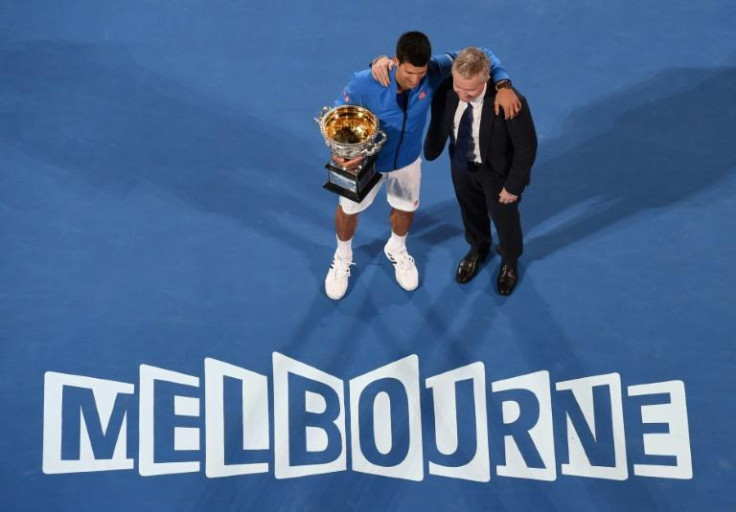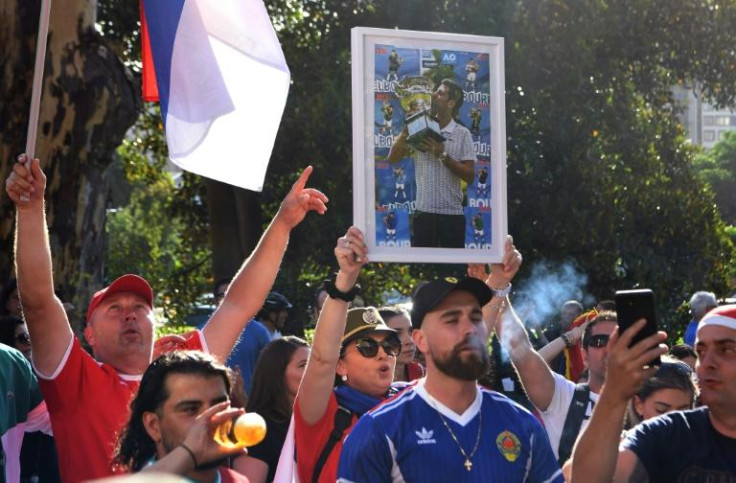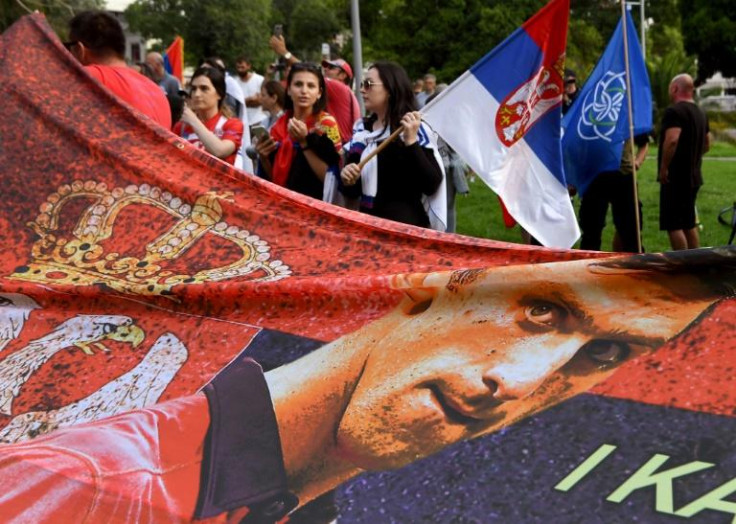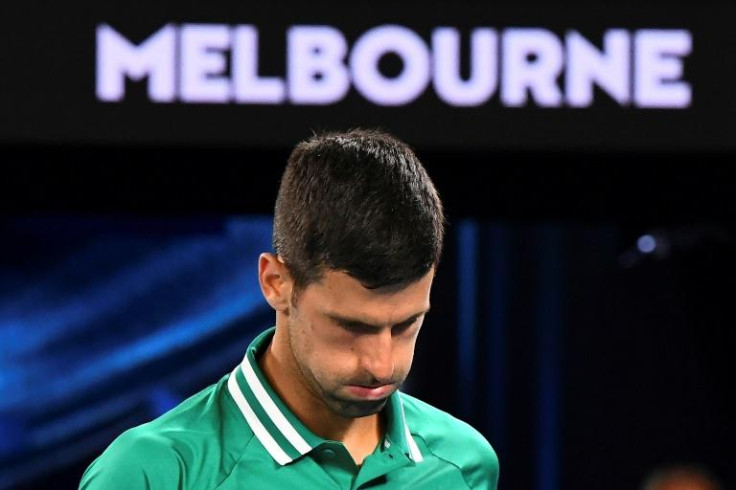Djokovic opens dramatic court battle to stay in Australia
The country is now approaching 100,000 cases a day, having been virus-free for much of the pandemic.
Detained tennis superstar Novak Djokovic got his day in court Monday, with an Australian judge hearing his make-or-break bid to avoid deportation and challenge for a record-breaking 21st Grand Slam title.
The 34-year-old Serb had his visa revoked on arrival in Australia last week for failing to show he was vaccinated against Covid-19 or had a solid medical reason for not getting jabbed.
He has spent four nights at a notorious Melbourne immigration detention facility, from where he was expected to be watching as his lawyers launched their 11th hour court challenge to let him stay in the country.

Proceedings were briefly delayed Monday as the court's online system crashed under a surge of worldwide interest.
But eventually, the judge pressed ahead without a public livestream, and Djokovic's team of top flight lawyers made his case.
They believe a recent Covid-19 infection made him exempt from Australia's tough vaccine entry requirements and that his visa was wrongly cancelled.
The Australian Open gets underway in just seven days, and the nine-time defending champion's participation now entirely depends on whether Judge Anthony Kelly agrees.

Another tennis player -- Czech doubles specialist Renata Voracova -- has also had her visa cancelled.
She flew out of Australia on Saturday after being held in the same Melbourne centre as Djokovic.
Most foreigners are still banned from travel to Australia, and those granted entry must be fully vaccinated or have an exemption like "acute" illness.
Government lawyers reject Djokovic's case, saying he fails to meet the medical criteria as his recent infection was not "acute."

They will seek to have his appeal dismissed with costs, according to a 13-page court submission, paving the way for his deportation as soon as Monday evening.
Despite Djokovic's claim of a positive test on December 16, pictures shared by the Belgrade tennis federation showed him at a young players' event in the city on December 17.
It reported that he had handed over cups and prizes to players. No one was wearing a mask.
Djokovic also attended a gathering on December 16, when the Serbian national postal service launched a stamp series in his honour.

Djokovic was expected to watch proceedings from the former Park Hotel, a five-storey facility that holds about 32 migrants trapped in Australia's hardline immigration system -- some for years on end.
For days, demonstrators and counter-demonstrators have gathered outside the facility. Nobody is allowed in or out except staff.

The centre gained notoriety last year when a fire forced migrants to be evacuated, and maggots were allegedly found in the food.
Hours before the hearing, a pro-refugee banner was unfurled from the roof and police removed a small number of protestors from the scene.
Meanwhile at a rally in Belgrade, Djokovic's mother Dijana claimed her son was staying "in not human conditions".
"They detained him and even don't give him breakfast, he has only lunch and dinner," she said, quoted by local media.
"He does not have a normal window, he stares at a wall."
Since being held, his pleas to be moved to a facility where he can train for the Australian Open have fallen on deaf ears, his lawyers said.
Prime Minister Ana Brnabic said this weekend that Serbia was fully behind the player and that she had held "constructive talks" with her Australian counterpart.
"We managed that he gets gluten-free food, exercise equipment, a laptop," she told Serbia's Pink television.
As other players now enter the final intense phase of preparations for the tournament, Djokovic faces huge pressure to be ready in time.
Djokovic's lawyers have told the court that Tennis Australia needs an answer by Tuesday. The draw for the event is scheduled for Thursday.
But Judge Kelly has warned justice will move at its own pace through all necessary appeals.
"The tail won't be wagging the dog here," he said.
Tennis Australia chief Craig Tiley on Monday defended his organisation from criticism that it failed to warn players that a previous infection did not qualify them for entry without a Covid-19 vaccination.
Tiley said he had asked the government to review medical exemptions before the players arrived, but "they declined".
"We asked if they could please assess our decisions. We said we're going to need some help to make sure we're doing the right thing. We'd be in a different situation today," he told The Sydney Morning Herald.
The country is now approaching 100,000 cases a day, having been virus-free for much of the pandemic.
Copyright AFP. All rights reserved.
This article is copyrighted by International Business Times, the business news leader





















